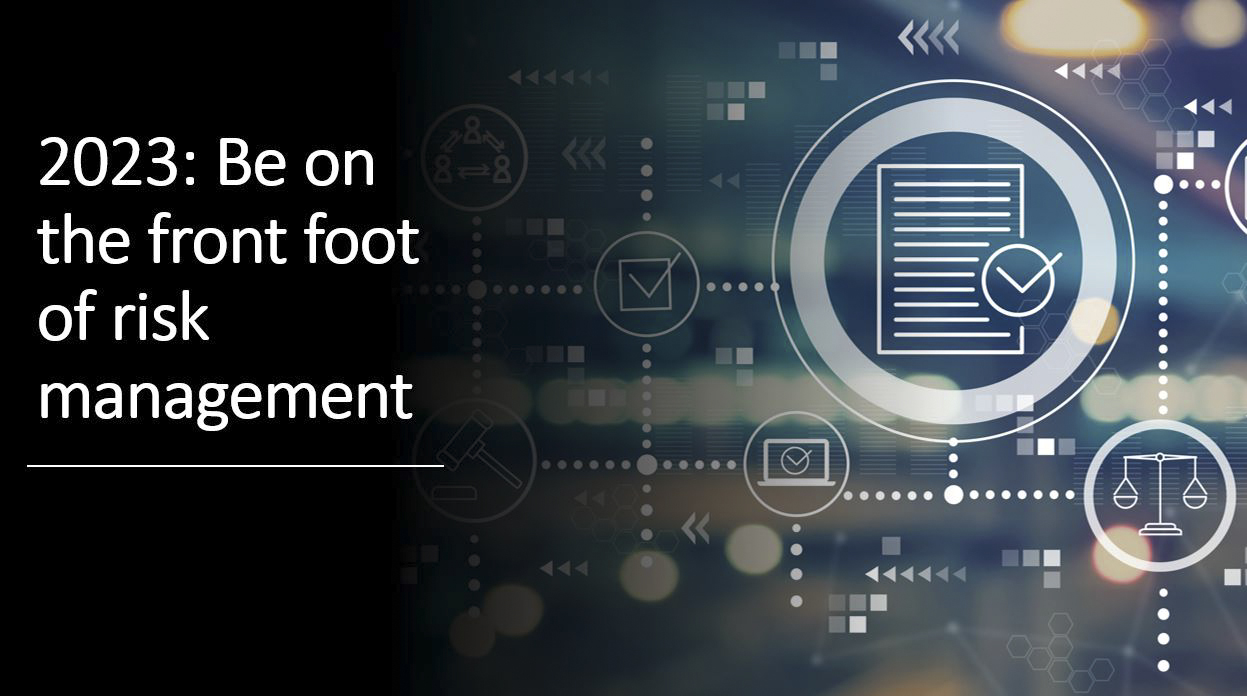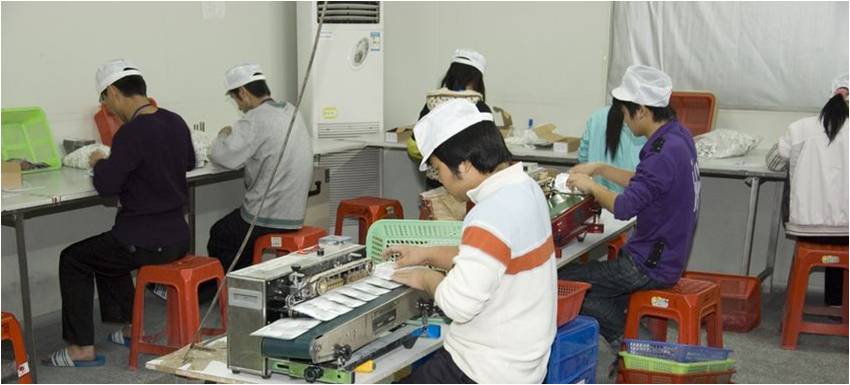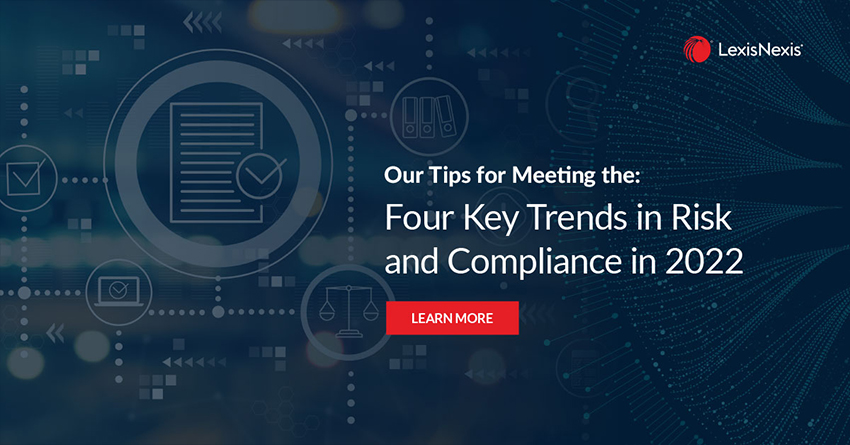Compliance, Risk & Due Diligence

Understanding Types of Financial Crime: A Comprehensive Guide
Common Types of Financial Crime Financial crimes, such as tax evasion, money laundering and embezzlement, can have serious consequences for individuals, businesses, and corporations alike. There is an array of illegal activities that can be considered financial crime. In a broad sense, the term refers to any act involving deception or dishonesty for financial gain. Unfortunately, these criminal acts remain common due...

Round up of recent major fines for alleged compliance failures – and how companies can mitigate this rising regulatory risk
Over the past few months, companies from a wide range of jurisdictions and industries had to pay hundreds of millions of dollars in fines for alleged failures of compliance and due diligence. In this blog, we dive deeper into some of these enforcement actions and draw out lessons companies can learn to mitigate the legal, financial, reputational and strategic risks of a regulatory breach. We also explain how Nexis Solutions...

3 Ways that Timely, Third-Party Data Helps Manufacturers Identify Supply Chain Red Flags Faster
Supply chain risk is not a new phenomenon, but it has certainly intensified. As the pandemic began its global spread in early 2020, 94% of Fortune 1000 companies reported supply chain disruptions . Today, global supply chains continue to flounder, earning a spot on the 2022 Davos Agenda and in the minds of procurement and supply chain leaders worldwide. Improving visibility into potential supply chain risk is a must,...

2023: Be on the front foot of risk management
Change is one of the few constants in our “unprecedented age”. It has afforded a great deal of improvement in the professional world. However, it has brought with it increased complexity, risk and requires businesses, more than ever, to be on the front foot of innovation. Specifically, operations must be regularly reviewed and enhanced to bring them in line with compliance legislation and good working practice. While...

Building a Case for PESTLE Risk Monitoring—Forecast environmental risk more accurately
Our series on PESTLE risk monitoring concludes with an exploration of the “E” risk—Environmental—and the diverse ways in which it impacts organisations. “Risk is like fire: If controlled it will help you; if uncontrolled it will rise up and destroy you.” Those words, spoken by President Theodore Roosevelt more than a century ago, still hold true today. But ‘control’ doesn’t equate to eliminating risk—an impossibility...
Building a Case for PESTLE Risk Monitoring— How to avoid legal pitfalls in your business and supply chains
Regulations and laws are the essential components of ensuring a level playing field for businesses and societies, and they affect every business. The legal factors which affect businesses can both negatively and positively impact on how a company operates and how it is managed, regardless of the country in which it is located. Regulatory risks, which can impact profit, reputation and business success, can occur even...
COVID-19 and global risk management: What we can see from the data?
The novel coronavirus, or COVID-19, has already changed society. As governments worldwide struggle to adapt to the new reality, they are introducing measures aimed at preventing the further spread of the virus and increasing the resilience of their public healthcare systems. But with more than 2.5 billion workers and consumers on virtual lock-down, COVID-19 is also having an enormous impact on the global economy, disrupting...
Behind Every Flag: Third Party Due Diligence for Shipping
Over the last decade regulatory pressures requiring companies to carry out third party due diligence have primarily focussed on compliance across three areas; anti-bribery and corruption, anti-money laundering, and sanctions regulation. The shipping sector is particularly vulnerable to bribery and corruption risk with instances of companies engaging government officials, such as custom authorities, where there might...

Managing compliance in high risk industries and countries
Risk management and legal compliance are serious issues for all businesses. A tightening of regulation - and the fear of negative publicity as a consequence of perceived unethical conduct - has placed such issues into sharp focus. Nowhere is this risk more acute than in the oil, gas and extractives markets. Out of the 9 Foreign Corrupt Practices Act corporate actions by the US government last year, three involved...
There are more slaves today than EVER before in the history of the world
In October, there were 615 UK media articles recognised by the LexisNexis Human Trafficking Awareness Index data model . That compares with only 439 in September, representing a 40% increase. To better understand what's behind this rise, a quick look at the data through Nexis Analyser shows a significant peak of reporting during Week 42 (October 13, 2014 – October 19, 2014). During this week there were several articles...
How PESTEL analysis can bring a bigger picture of your firm's external environment
PESTEL (political, economic, social, technological, environmental and legal) analysis is a strategic tool for understanding the macro-environmental factors that companies have to take into consideration when conducting analysis or market research. PESTEL analysis provides a framework for organisations to better understand their future business landscape through opportunities in market growth, especially when a firm is...
Barclays record FCA fine highlights need for third party due-diligence
The recent news of Barclays £72 million fine for failing to conduct the appropriate checks on Politically Exposed Persons (PEPs) is a blunt reminder that organisations must make sure due diligence processes are followed by all employees. FCA fines of this nature could well be the first of many. As we noted in our blog – Reputational risks are greater than ever for brands associated with slavery – earlier in March, '…...

Modern-day slavery widespread in Malaysia’s electronics industry
The human trafficking and slavery of people is a very real problem. It's a global issue that affects the service industry, agriculture and the construction industry. But it may not have occurred to you that the computer monitor or tablet you are viewing this blog on could well be a product of forced labour. US based fair-labour organisation, Verité , has conducted a study into the prevalence of forced labour in the...
Reputational risks are greater than ever for brands associated with slavery
Amnesty International's recent report about child labour in supply chains demonstrated children as young as seven working in cobalt mines in the Democratic Republic of Congo. Cobalt is used in mobile phone batteries and Amnesty accuses several global electronics brands of failing to do basic supply chain checks. This was widely reported in the media at the time but is not the only example of media interest in the issue...
Supply chain due diligence under the Modern Slavery Act
In March 2015 the Modern Slavery Act became law. Its effect on UK businesses will be significant. The first of its kind in Europe, and one of the first in the world, to specifically address slavery and human trafficking in the 21st century, the Modern Slavery Act is poised to become one of the most significant pieces of legislation for supply chain due diligence processes. What does this mean for businesses? From...

Our tips for meeting the four key trends in risk and compliance in 2022
The landscape of risk and compliance is always changing. In the last few months alone, there have been developments in global regulations for anti-bribery and corruption and due diligence, and major enforcement actions against companies who have allegedly failed to comply. There have also been significant changes to national and supranational sanctions regimes, and louder calls for companies to demonstrate their ESG impact...
Paypal issued £5M fine due to inadequate sanctions screening process
The US Treasury Department issued Paypal with a £5M fine after they had allowed payments which violated sanctions and involved links to weapons of mass destruction. Paypal failed to prevent the transactions due to a failed screening process, causing non compliance with the Treasury's Foreign Assets Control regulation. On 27 March Paypal agreed to pay the £5m fine after the US Treasury Department found they had allowed...

The Perfect Storm: EU's 6th Anti-Money Laundering Directive Raises Regulatory Risk with a Broader Definition of Money Laundering & Extended Criminal Liability
The European Union's Sixth Anti-Money Laundering Directive (6AMLD) came into effect in all EU member states in December 2020, and it must be enforced by all regulated financial institutions by 3rd June 2021. Companies operating in Europe—and multinationals based in the U.S.—must ensure their due diligence and risk monitoring processes are aligned to meet the new requirements, or risk incurring legal, financial, reputational...
Fine time for pharma; why due diligence is important
Since the mid-1990s, regulatory expectations on the due diligence carried out in the pharmaceutical sector have become much more complicated. Drugs firms are subject to regulations laid out in the US Foreign Corrupt Practices Act and by the US Food and Drug Administration (FDA); in the UK under the Bribery Act and by the Medicines and Healthcare Products Regulatory Agency; and across Europe by the European Medicines Agency...

Nestle Case Study: Human rights due diligence
According to research by Ethical Corporation in 2016, nearly 50% of businesses stated human rights was their number one supply chain issue in the next year. The United Nations Guiding Principles on Business and Human Rights provide the global standard since 2011. In this blog, we provide insight into an international company that is dealing with human rights issues in its supply chain from the past, but which in recent...

Building a Case for PESTLE Risk Monitoring—How to Manage Economic Risk More Effectively
Economics is at the core of every business. Defined as the production, consumption, and movement of wealth, economic factors have a significant influence over how successful, sustainable, and profitable an organisation is. But if things go wrong, economic risks can disrupt supply chains and destroy businesses. Let's look further at the types of economic risk and examples of how companies have mitigated their own economic...

Building a Case for PESTLE Risk Monitoring—See Socio-Cultural Risk More Clearly
As organisations become more reliant on complex networks of suppliers and other third parties, the risks they face also expand. But in order to capture the big picture on risk, organisations need to focus on the small picture—at least when it comes to socio-cultural risk. Know the Socio-Cultural Risk Factors Given the scale of today’s supply chains—and growth goals that see organisations expanding operations into...

Building a model CSR strategy brick-by-brick
LEGO Group will sell some pieces made from plant-based plastic this year—it’s the first step in its bid to make all products and packaging from sustainable materials in 2030. LEGO prioritises corporate social responsibility, earning it the ranking as the company with the best reputation by a global index last year. We ask what other companies can learn from LEGO’s example. Laying the foundations for an ethical reputation...

Six principles for bribery prevention
The UK Bribery Act 2010, which came into force on 1st July 2011, replaced legislation dating back to 1889 and affects all businesses operating in the UK. Offences The offences of giving and receiving bribes and bribing foreign public officials apply to all UK corporate entities, even if they are foreign owned. Ignorance of the law is not a defence and companies can fall foul of the legislation even if the offence...

Building a Case for PESTLE Risk Monitoring— How to anticipate Technological Disruptions
Our series on PESTLE risk monitoring continues with a deeper look at "T"—Technological risk—and how it can impact organisations enterprise-wide. The World Economic Forum, in their Global Risks Report 2017 have stated that: "The deep interconnectedness of global risks means that technological transitions can exert a multiplier effect on the risk landscape". In fact, technological risks relating to Artificial Intelligence...